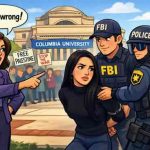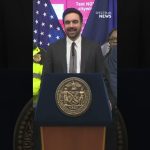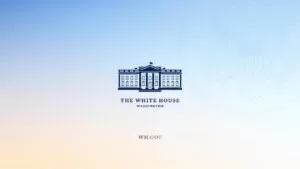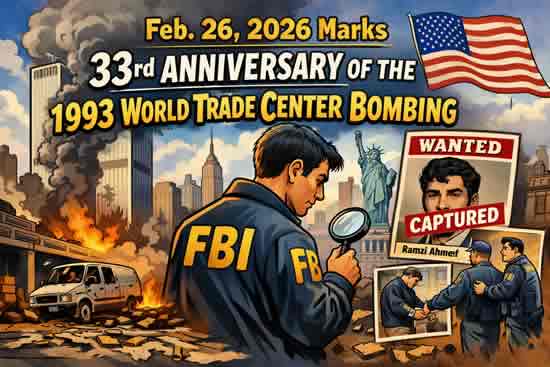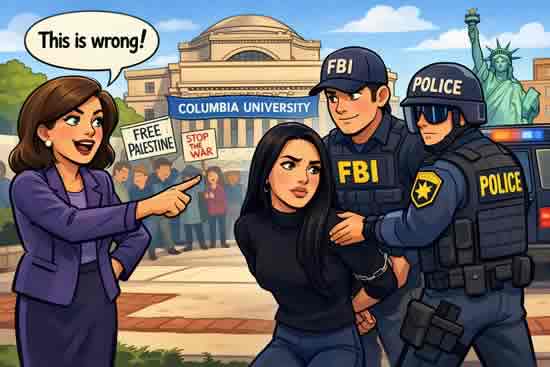Keeping students safe from gun violence in their school communities is a top priority for the Biden-Harris Administration. According to the Washington Post, there have been 394 school shootings that exposed more than 360,000 students to gun violence since the mass shooting at Columbine High School in Colorado in 1999.
The Biden-Harris Administration is committed to preventing gun violence. President Biden and Vice President Harris worked to enact the Bipartisan Safer Communities Act (BSCA), the most significant gun safety law in nearly 30 years. Following this, the President created the White House Office of Gun Violence Prevention, which is being overseen by Vice President Harris. The unprecedented Office is accelerating the implementation of BSCA, identifying new executive actions, partnering with state and local officials, and coordinating the first ever federal interagency response to mass shootings and concentrations of community violence. The President has also taken more executive actions on preventing gun violence than any other President.
The Biden-Administration has invested more resources in school safety and taken significant steps to keeps firearms out of school. The strategy has focused on (1) stopping people in crisis and juveniles from accessing firearms, (2) implementing evidence-based school-based preventative solutions, and (3) addressing the mental health needs of students, particularly those impacted by gun violence.
During her visit to Marjory Stoneman Douglas High School in Parkland, Florida, the Vice President is announcing two solutions to keep guns out of the hands of people in crisis:
First, Vice President Harris is announcing the launch of the first-ever National Extreme Risk Protection Order (ERPO) Resource Center, which will support the effective implementation of state red flag laws.
- The Resource Center will assist states, local governments, law enforcement, prosecutors, attorneys, judges, clinicians, victim service providers, and behavioral health and other social service providers in optimizing the usage of red flag laws – laws that allows a family member or law enforcement to seek a court order to temporarily take away access to guns if they feel a gun owner may harm themselves or others.
- The Resource Center will provide training and technical assistance, which will include developing and disseminating educational opportunities and workshops for a wide variety of stakeholders, providing implementation support, supporting peer-to-peer engagements with model learning sites, performing site assessments, and developing presentations and webinars that will advance states and localities’ knowledge in key areas related to ERPOs.
- The Resource Center is funded by a Department of Justice’s (DOJ) Bureau of Justice Assistance grant made possible by BSCA, and is run by the Johns Hopkins Center for Gun Violence Solutions.
Second, the Vice President is calling on states to pass red flag laws and to use BSCA funding to help implement laws already enacted.
- The Biden-Harris Administration made $750 million in federal funding to implement state crisis intervention programs, which includes red flag programs, mental health courts, drug courts, and veteran treatment courts. In February 2023, DOJ awarded over $238 million (covering FY22 and FY23) to 51 states, territories, and the District of Columbia that applied to use the funds to implement state crisis intervention programs. DOJ anticipates making up to an additional $141 million in awards in FY24.
- When it comes to red flag programs, this funding can be used to train (1) judiciary and court staff on red flag proceedings, (2) what family members can do when they see warning signs, and (3) first responders on recognizing signs of crisis. The funding can also be used to raise public awareness about red flag laws, distribute written and multimedia materials (including in multiple languages), and publish best practices.
- Of the 21 states and territories with red flag laws, only 6 are accessing the BSCA funding to implement their red flag laws. The remaining 15 states with red flag laws are strongly encouraged to use BSCA’s funding to implement their red flags laws.
- The 29 states without red flag laws should enact those laws and ensure effective implementation, supported by this BSCA funding.
Extreme Risk Protection Order or “Red Flag” Laws Can Prevent Shootings
The Department of Homeland Security’s National Threat Assessment Center conducted a systematic review of targeted school violence incidents and found that there were often warning signs. The review, which is corroborated by other analysis, found that these incidents were often preceded by observed warning signs, including instances where the individual told other about their plan ahead of time.
ERPO or “red flag” laws generally create a civil process for law enforcement (and often times family members) to seek a judicial order that a person is a danger to themselves or others and should temporarily lose the ability to purchase and possess firearms. The laws have due process protections that ensure people’s rights are respected, but also enable a concrete way to intervene.
The shooting at Marjory Stoneman Douglas High School occurred after there were clear warning signs, but there were no tools to remove the shooter’s firearm. The survivors of the shooting advocated for passage of a red flag law in Florida, and the tragedy helped to inspire the passage of red flag laws in other states across the country. Currently, 21 states and the District of Columbia have red flag laws on the books. These laws have been shown to prevent mass shootings and suicides, but the tools made available under these laws are only effective if people are aware of them and can properly invoke them.
Additional Biden-Harris Administration Actions to Keep Schools Safe:
Addressing Access to Firearms by People in Crisis or Under 21
The National Threat Assessment Center found that 76 percent of incidents of targeted school shootings are committed with guns from the home. There are approximately 4.6 million children living in homes with unsecured firearms, so the Biden-Harris Administration has prioritized raising awareness about how safe gun storage can keep schools and young people safe. For example, U.S. Secretary of Education Miguel A. Cardona sent a letter and template to school principals across the country explaining the importance of safe storage and encouraging them to communicate with parents, families, caregivers, and the broader community about how safe storage can protect students in school and in their communities.
The DOJ released a comprehensive guide to safe storage of firearms in order to provide subject matter expertise on different types of storage devices and best practices for safely storing firearms. This is the most comprehensive guide on safe storage ever released by the federal government. In addition, DOJ’s Byrne State Crisis Intervention Program made grant funds available for law enforcement to acquire gun locks and storage devices that can be distributed to individuals and businesses.
The Biden-Harris Administration has quickly implemented BSCA to enhance background check for individuals under 21 who seek to purchase a firearm at a licensed gun dealer. Federal law has long-prohibited firearms dealers from selling handguns to persons under 21 . The BSCA requires enhanced background checks before any sale or transfer of a firearm to a person under the age of 21. Since implementing BSCA’s enhanced background checks in October 2022, DOJ has conducted enhanced background checks on more than 230,000 transactions. Those checks have kept more than 2,300 firearms out of the hands of dangerous and prohibited persons, and over a quarter of those denials — 667 as of this month — were based solely on information received through the additional BSCA-enabled outreach. Just a few of the transactions denied under the new background check illustrate how important this new tool is working:
- A sheriff’s office responded to the NICS Section with an incident report indicating that the U21 firearm purchaser had been arrested for attempted murder and other offenses. The NICS Section obtained court documentation showing that the U21 purchaser was released on bond with court-ordered firearm restrictions pending the resolution of those charges. The transaction was denied based on a state prohibitor for active court-ordered firearm restrictions.
- During BSCA-mandated outreach, a juvenile court provided documentation establishing that a U21 firearm purchaser was found to be mentally ill and involuntarily committed for mental-health treatment. The transaction was denied based on the federal firearm prohibitor relating to mental-health adjudications.
- During BSCA-mandated outreach, a county court provided the NICS Section with documentation that the U21 firearm purchaser had sustained juvenile adjudications for sexual battery, possession of a knife at school, and intimidation. The transaction was denied based on a state prohibitor for disqualifying juvenile adjudications.
Lastly, untraceable ghost guns that could be ordered online and easily completed at home were starting to show up in school shootings. The Biden-Harris Administration cracked down on ghost guns by making clear that businesses manufacturing the most accessible ghost guns, including “buy-build-shoot” kits, must comply with federal firearm laws requiring background checks, a federal license, and inclusion of serial numbers.
Largest Dedicated Effort on Evidence-Based School-Based Solutions
The Biden-Harris Administration provided $1 billion to schools through the Stronger Connections Grant program, which helps provide students with safe and supportive learning opportunities and environments that are critical for their success and overall well-being. Stronger Connections funding is allocated to underserved school districts (including those that have a high rate of community or school violence) on a competitive basis and may be used for a variety of strategies, including school-based mental health services, safety and violence prevention and intervention programs, and physical security measures.
Over the past 3 years, the Biden-Harris Administration has awarded nearly $500 million for schools to invest in evidence-based solutions through the STOP School Violence Program, with funding supplemented by BSCA. The program is designed to improve K-12 school security by providing schools, students and teachers with the tools they need to recognize, respond quickly to, and help prevent acts of violence and ensure a positive school climate. This includes developing and operating anonymous reporting systems and training school personnel on preventing school violence. The DOJ anticipates approximately $160 million in additional funding opportunities for the STOP program this year.
The Biden Harris Administration has established the Federal School Safety Clearinghouse pursuant to the Luke and Alex School Safety Act that was part of BSCA. The Clearinghouse, located at SchoolSafety.gov, provides evidence-based practices and recommendations to improve school safety for use by states, local educational agencies, institutions of higher education, state and local law enforcement agencies, health professionals, and the general public.
Historic Investment in Student Mental Health
The Biden-Harris Administration awarded $122 billion in American Rescue Plan Elementary and Secondary School Emergency Relief funds to help schools reopen and recover, and experts indicate more than $2 billion has been directed to hire more school psychologists, counselors, and other mental health professionals in K-12 schools. With the help of these funds, the number of school social workers, school counselors, school nurses, and school psychologists have all increased over pre-pandemic levels.
The Biden-Harris Administration will invest more than $1 billion to help underserved school districts hire and train school-based mental health professionals over the next five years. To date, the U.S. Department of Education (ED) has awarded $571 million across 264 grantees in 48 states and the District of Columbia to boost the training, hiring, and diversity of mental health professionals in schools. The funding was made available through BSCA, and grantees estimate that these funds will collectively support the training and hiring of more than 14,000 new mental health professionals to serve America’s school children. ED anticipates making approximately $38 million of new funding available for new applicants his year.
The Biden-Harris Administration will continue to take action to ensure that our schools and our communities are safe from gun violence.
At the same time President Biden and Vice President Harris call on Congress to pass universal background checks, a national red flag law, an assault weapons ban, and a secure storage law; to repeal the Protection of Lawful Commerce in Arms Act (PLCAA), which gives gun dealers and manufactures special immunity from certain liability for their products; and to increase appropriations to support youth mental health and violence prevention strategies.
March 23 2024 White House . Washington DC
– Briefing Room – Statements and Releases.
Source: WH,gov – Midtown Tribune news
Big New York news BigNY.com





